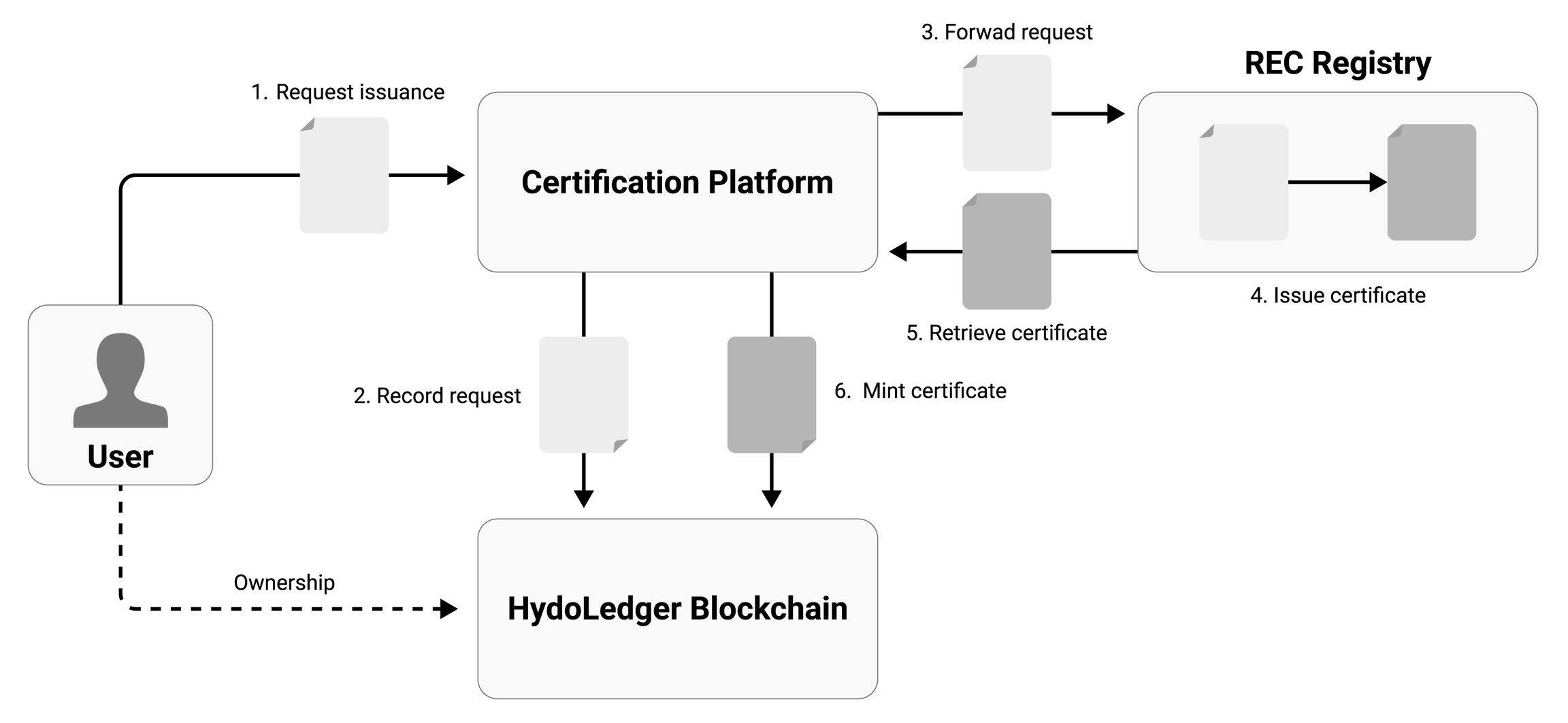Certification Functionality
Request, Approve, Issuance, Revocation
Certificate Request
Users can request the issuance of certificates for a specific generation device and a specific time frame. They have to provide the issuer with generation evidence from the device at the defined time. Based on this evidence, the energy volume can be determined, and thereby the number of certificates.
Certificate Approval
Issuers receive the issuance request, defining the device and time frame, together with the generation evidence. Based on this information, the issuer can define the number of certificates to be issued and initiate the issuance.
Certificate Transfer
Public certificates can be transferred between users on the platform or external accounts without any additional information, however, private certificates must first be made public to transfer, or the transaction must be approved by the issuer.
Certificate Revocation
The issuer can, under some circumstances, revoke certificates. For example, this could occur based on problems with generation evidence. Once a certificate is revoked, it can no longer be claimed or transferred because its validityData() callback function will return that it is invalid.
Claim Certificate
Certificate owners can claim their certificates for reporting purposes. The 'claimed' state is the final stage of the certificate lifecycle.
Only public certificates can be claimed to ensure transparency and prevent double counting.
Last updated
